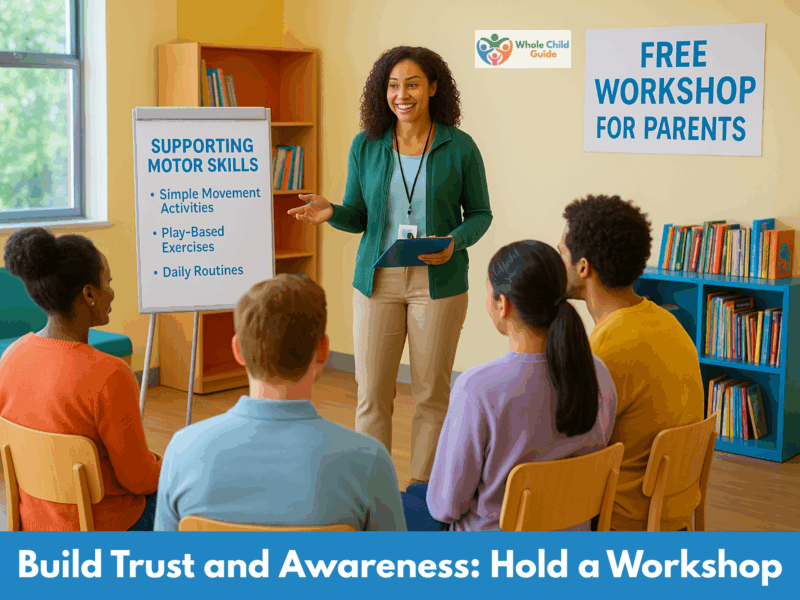
One of the best ways for child development professionals to connect with parents is through free workshops or Q&A sessions. Whether offered online or in person, when you hold a workshop, you help families learn from your expertise, give you visibility in your community, and build trust that often leads to future referrals.
Why Free Workshops Work
Parents are more likely to engage with professionals when there is no financial barrier. A free session creates a low-pressure opportunity for families to hear your insights, ask questions, and see how you can support their child. It also positions you as a knowledgeable, approachable resource.
Choosing the Right Format
You can host your workshop or Q&A in a variety of formats depending on your goals and audience:
- In-person at schools, libraries, or community centers
- Online via Zoom or another webinar platform
- Hybrid events that combine both in-person and virtual attendance
Think about where parents in your community already gather and what makes participation easiest for them.
Picking a Topic That Resonates for When You Hold a Workshop
Your topic should address common questions or concerns parents have about their children. A few examples include:
- How to Support Self-Regulation at Home
- Simple Movement Activities to Build Motor Skills
- Helping Children Transition Between Activities Without Meltdowns
- Understanding Sensory Processing Differences
- Encouraging Fine Motor Skills for School Readiness
- Building Confidence and Independence in Daily Routines
- Reducing Screen Time Without the Struggle
- Fun Ways to Support Early Literacy Through Play
- Executive Function Skills: What Parents Need to Know
- Strategies to Help with Homework Routines
- Promoting Healthy Sleep Habits for Children
- Supporting Peer Friendships and Social Skills
- Calming Strategies for Kids with Big Emotions
- How to Encourage Outdoor Play for Development and Health
- Managing Worry and Anxiety in Children
- Quick and Easy Brain Breaks for Home
- Supporting Your Child’s Attention and Focus
- Nutrition and Movement: Helping Kids Stay Energized
- Positive Parenting Strategies That Build Connection
- Activities to Boost Handwriting Readiness
- Encouraging Creative Expression Through Art and Music
- Building Resilience: Helping Kids Bounce Back After Challenges
- Understanding Developmental Milestones and When to Seek Help
- How to Use Visual Supports at Home
- Collaborating With Schools: How Parents Can Advocate Effectively
Remember to keep your focus narrow so the session feels approachable and practical.
Making It Engaging
Parents appreciate sessions that are interactive and to the point. To keep your event engaging:
- Share a few simple strategies parents can use immediately
- Leave time for open Q&A
- Use visuals or handouts to reinforce key ideas
- Keep the total length between 30–45 minutes
Shorter, focused workshops are more likely to keep parents’ attention and leave them wanting more.
Following Up After You Hold the Workshop
The real value of a workshop comes from what happens afterward. Be sure to:
- Provide a summary handout or resource list
- Invite parents to join your email list or follow you on social media
- Encourage ongoing communication if they have more questions
- Share upcoming opportunities to connect with you again
This follow-up is what turns a one-time event into a lasting professional relationship.
Get Listed in the Whole Child Guide
If you want families in your area to easily find you, consider joining the Whole Child Guide directory. Listing your professional services ensures parents in your community know who you are, what you offer, and how to reach you. It’s an easy way to increase your visibility while connecting with the families who need your expertise most.

